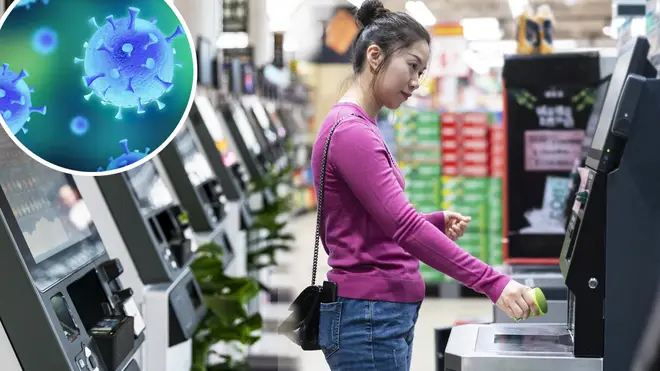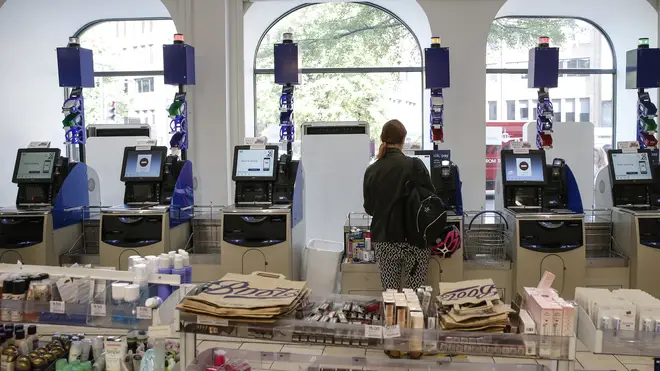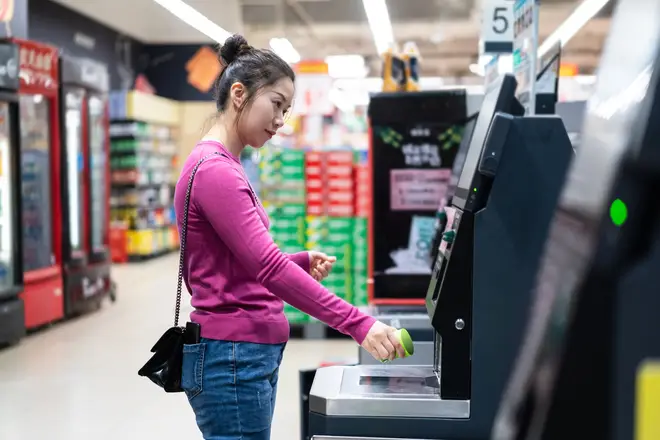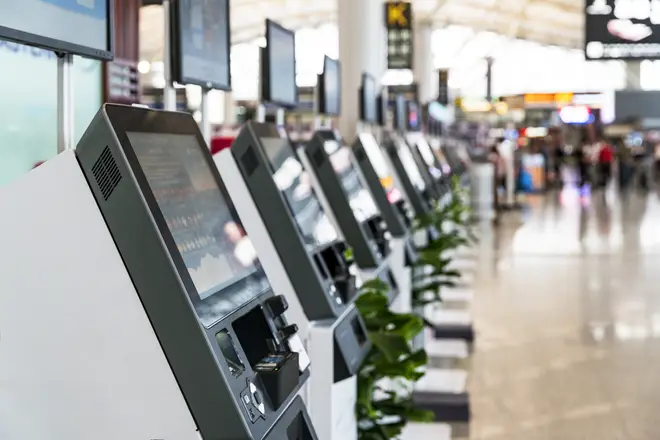On Air Now
Heart Breakfast with JK and Amanda Holden 6:30am - 10am
23 June 2020, 12:03

As the coronavirus pandemic continues across the UK, people are trying to stay as safe as possible – but how risky is using a touchscreen self-checkout?
Lockdown may be easing across the UK – in different ways depending on the country – but people are still keen to do what they can to stop the spread of COVID-19.
At the moment across the UK, many supermarket chains have self-service checkout systems in place for people doing smaller shops, or for customers using the scan as you go system.
Before the global pandemic, these were a life saver and moved queues along quickly, but these days people are avoiding them as they are concerned about using the frequently touched screen.
READ MORE: Boris Johnson insists schools 'are safe' as he urges parents to send their children back

Studies have found that coronavirus can stay on surfaces like metal, plastic and glass for around two to three days, meaning the virus can live on touchscreens for hours if they are not cleaned regularly.
And because hundreds of people are using them in a matter of days, it's a great place for bacteria and viruses to live and then spread.
Speaking to The Independent, infectious disease epidemiologist Dr Tara Smith from Kent State University said: “Since so many people are touching them day in and day out, they’re a great place for viruses and bacteria to be deposited by infected individuals and be picked up by healthy ones, spreading the germ to new people.”

The main way to stop the virus spreading is bringing in a more regular and vigilant cleaning programme.
And while many people may just be avoiding using touchscreens in their local supermarkets, a senior research fellow in global health at the University of Southampton, Michael Head, explained you don't need to do this.
He said: “Touchscreens are now in many places in UK society, so it’s often hard to avoid needing to use them.
"Various laboratory studies have shown it is certainly theoretically possible, viral loads are detected on the screens."

He said the most "practical advice" for people is to make sure they are "thoroughly washing and cleaning their hands several times a day", which reduces the risk of any infection.
It's important to note that most supermarkets have stepped up their cleaning expectations with staff, and touchscreen surfaces are cleaned on a regular basis.
Speaking on customers using their own wipes to clean a touchscreen, Micheal said: “It’s probably not advisable to use wipes first on the screen, since the wipe may not adequately disinfect the screen, and it may also cause problems on the screen itself.
“So washing hands soon afterwards is definitely the best solution.”